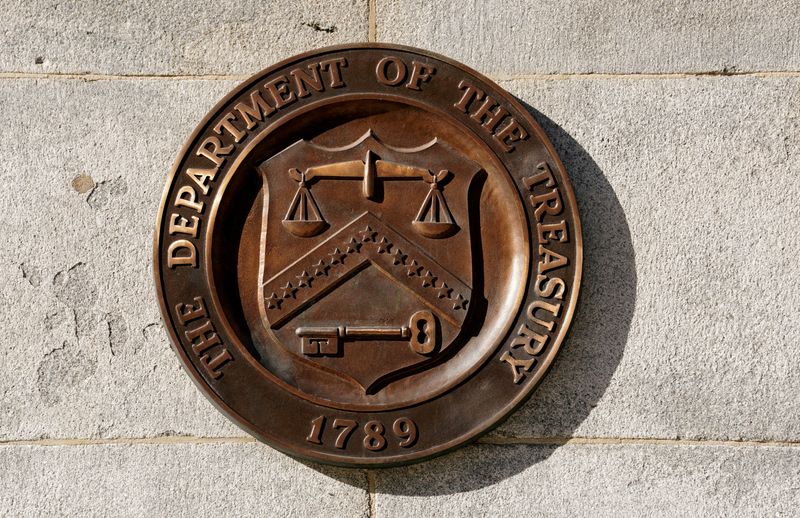By David Lawder
WASHINGTON (Reuters) -The U.S. Treasury Department on Tuesday announced new steps to boost the supply of affordable housing by unlocking billions of dollars in unspent COVID-19 aid funding to state and local governments to support a wider array of housing projects.
The initiatives are part of a Biden administration drive to address a key economic challenge facing Americans: lack of housing affordability. This is in turn contributing to inflation and negative voter sentiment on President Joe Biden's handling of the economy.
In the biggest of the moves, the Treasury said it would allow state and local governments to use unspent funds from the $350 billion State and Local Fiscal Recovery Fund to support housing projects serving families earning up to 120% of the area's median income, a big jump from 65% previously.
These funds can also now be spent on projects that meet the terms of one of a dozen or more federal housing programs as well as those supported by government mortgage enterprises Fannie Mae and Freddie Mac to house essential workers such as teachers, firefighters and nurses. This will open up a significantly wider array of housing projects eligible for support.
SPENDING DEADLINES LOOM
The amount of funding still available for such projects could be as high as about $40 billion, based on Reuters calculations. As of Sept. 30, 2023, Treasury estimated that about 12% of the $350 billion in state and local funding had not been budgeted by states and the largest cities and counties, which received the lion's share of the funding.
The 2021 American Rescue Plan Act stipulated that all of the state and local fiscal recovery funds must be obligated -- with contracts or other binding spending commitments -- by the end of 2024, and funds must be fully expended by the end of 2026. Anything left over then reverts to the federal government for Congress to redeploy.
Another step announced by Treasury will allow communities with unspent COVID-era Emergency Rental Assistance Program funds can divert them to supporting "pre-development" and land acquisition costs for low-income affordable housing projects, in addition to construction and rehabilitation costs allowed previously.
As of June 30, 2023, the most recent data available, about $6.9 billion was left in the original $46 billion rental assistance program started by the Trump administration and expanded under Biden to combat homelessness during the pandemic.
Home prices are set to rise further in coming years as homeowners with low mortgage rates stay put, according to property experts. Increasing housing supply has proven difficult amid high interest rates and recent materials shortages.
"The lack of supply is helping to drive up housing costs for American families," Deputy Treasury Secretary Wally Adeyemo said in a blog post, adding that the steps would have a "modest but important impact on housing supply."
HUD BACKSTOP EXTENDED

The Treasury also said it was indefinitely extending the Federal Financing Bank's support for a housing project risk-sharing initiative between the Department of Housing and Urban Development (HUD) and local housing agencies.
The program was restarted in 2021, leveraging $5 billion in investments to develop and rehabilitate 42,000 affordable rental homes for low-income families, and Adeyemo estimated that the extension will add tens of thousands more units over the next decade. The Federal Financing Bank provides financing for federal agency borrowing and lending programs.